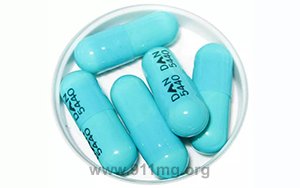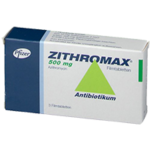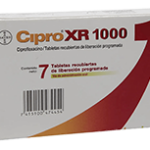What is Doxycycline?
Doxycycline is a broad-spectrum antibiotic that belongs to the tetracycline class of antibiotics. It’s used to treat various bacterial infections, including skin infections, respiratory infections, and sexually transmitted infections. Doxycycline works by inhibiting protein synthesis in bacteria, thereby stopping their growth and proliferation.
What is Doxycycline used for?
 Doxycycline is a versatile antibiotic that addresses a variety of infections, encompassing those of the respiratory tract, skin, and soft tissue, and sexually transmitted infections. It also finds use in acne treatment and as a preventive measure against malaria.
Doxycycline is a versatile antibiotic that addresses a variety of infections, encompassing those of the respiratory tract, skin, and soft tissue, and sexually transmitted infections. It also finds use in acne treatment and as a preventive measure against malaria.
The medication effectively manages infections instigated by susceptible strains of gram-positive and gram-negative microorganisms, along with certain other microorganisms. Specifically, it is used in the following cases:
- Respiratory tract infections: It treats pneumonia and other lower respiratory tract conditions caused by susceptible strains of Streptococcus pneumonia, Haemophilus influenzae, and Klebsiella pneumonia. It is also effective against pneumonia caused by Mycoplasma pneumonia and chronic bronchitis and sinusitis.
- Urinary tract infections: Doxycycline 200 mg is used to treat infections caused by susceptible strains of Klebsiella, Enterobacter, Escherichia coli, and Streptococcus faecalis.
- Sexually transmitted infections: The medication is effective against infections caused by Chlamydia trachomatis, including uncomplicated urethral, endocervical, and rectal infections. It also treats non-necrotizing urethritis caused by Ureaplasma urealyticum (T-mycoplasma), soft chancre, inguinal granuloma, and venereal granuloma. It serves as an alternative treatment for gonorrhea and syphilis.
- Skin infections: When antibiotic therapy is required for acne, Doxycycline is a viable option.
Doxycycline analogs:
Vibramycin: Vibramycin is one of the brand names of doxycycline produced by Pfizer. This antibiotic is widely used to treat a variety of bacterial infections, including chlamydia, gonorrhea, urethritis, and others. Vibramycin can also be used to prevent malaria when traveling to endemic areas.
Ornidox: Ornidox is another brand name for doxycycline produced by KRKA. It is also used to treat a variety of bacterial infections, including respiratory tract infections, urinary tract infections, and skin infections. Ornidox can also be used to treat Lyme disease and prevent malaria.
What does Doxycycline treat?
Doxycycline is effective against a range of bacterial infections. It’s particularly effective against Staphylococcus, Streptococcus, Pneumococcus, Salmonella typhi, and Klebsiella. It’s also used to treat certain parasitic infections, such as malaria.
Antibiotics help patients with infectious diseases caused by pathogenic microorganisms – sinusitis, pneumonia, bronchitis, rickettsiosis, skin, eye, and intestinal infections (with diarrhea symptoms), urethritis, prostatitis, sexually transmitted diseases, ornithosis, brucellosis, typhoid fever, leptospirosis.
How to take Doxycycline
Instructions for use Doxycycline warns that the drug strongly irritates the gastrointestinal tract, so it should be taken strictly during or after meals. You can wash down the tablet or capsule with clean water and dairy products – kefir or milk. However, some sources indicate that tetracyclines are incompatible with dairy products, so they can be consumed 2 hours before or as much after taking the tablet. This is explained by the fact that all tetracyclines, including doxycycline, form complex soluble compounds with calcium, of which all “milk” contains a lot. Given such conflicting information, you should consult your doctor about how to take Doxycycline.
If the drug is used for a long time, it is mandatory to perform laboratory blood tests at least once every 2-3 weeks. The dosage of Doxycycline is selected, taking into account the disease and the severity of its course, as well as the age and weight of the patient.
Patients weighing 45 kg or more and aged 12 years or older. Taking Doxycycline once a day at 200 mg (2 tablets or capsules) or twice a day at 100 mg on the first day is recommended. From the second day onward, 1 tablet daily is taken during treatment. If the patient’s condition is severe, 200 mg per day should be taken during the entire course.
Patients with weight less than 45 kg and above 12 years of age. The daily dose of Doxycycline is calculated based on the patient’s weight – 4.4 mg per kg of body weight (the dose should be taken once or twice) on the first day and 2.2 mg per kg of patient weight on the second and subsequent days of therapy.
Severe bacterial infections require an increased dosage (4.4 mg/kg body weight) for the duration of treatment.
An exception to these rules is the treatment of infections such as:
- Acne – half a tablet (50 mg) per day for one and a half to three months is recommended;
- STIs – the dosage of Doxycycline varies from 100 mg to 200 mg per day for 10-14 days, depending on the severity of the disease.
How to take Doxycycline in other cases is detailed in the instructions for drug use. Additional recommendations will be given to the doctor. Each patient takes the drug individually, but in any case, it should be at least 7-10 days. Otherwise, pathogenic microorganisms acquire resistance to antibiotic therapy (resistance to antibiotics develops, which threatens the appearance of super bacilli).
Important: Doxycycline is contraindicated in children under 12 because it binds calcium in the bones and teeth. As a result, the growth and development of the bone and dentoalveolar system is impaired – bone fragility and a condition called “tetracycline teeth”.
Doxycycline hyclate vs monohydrate
Doxycycline hyclate and doxycycline monohydrate are two forms of doxycycline. They are chemically similar and used to treat the same types of infections. The main difference between the two is in their formulation: doxycycline hyclate is more soluble in water, while doxycycline monohydrate is less likely to cause stomach side effects.
Doxycycline side effects
Like all medications, Doxycycline can cause side effects. Common side effects include nausea, vomiting, diarrhea, and rash. Less common but more serious side effects include allergic reactions, blood disorders, and liver problems.
| Common Side Effects | Less Common Side Effects | Rare Side Effects |
| Nausea | Joint pain | Yellow eyes or skin |
| Vomiting | Difficulty swallowing | Unusual bleeding or bruising |
| Upset stomach | Heartburn | Decreased urination |
| Diarrhea | White patches in mouth | Severe stomach cramps |
| Skin rash | Sore throat | Peeling skin |
| Itching | Change in taste | Difficulty breathing |
| Abdominal pain | Swelling of the face | Yellowing of the skin or eyes |
| Mild rash | Hives | Blood in urine or stools |
Can you drink on Doxycycline?
Alcohol can also interfere with healthy sleep and eating patterns and the body’s ability to absorb vital nutrients. These factors play an important role in recovering from illness and staying healthy. You should never drink alcohol while taking any of the antibiotics.
Interactions
Doxycycline can interact with other medications, including antacids, iron supplements, and certain types of birth control. It’s important to tell your healthcare provider about all the medications you’re currently taking, including prescription and over-the-counter medications, vitamins, and herbal supplements.
Use of the drug during lactation:
- In women who took 100 or 200 mg of doxycycline orally, the concentration in breast milk was about 0.8 mg/L during 2 and 3 hours and about 0.4 mg/L during 4.6 and 24 hours.
- The highest concentration of doxycycline in breast milk (0.96 mg/L) was observed between 2 and 4 hours after 100 mg and 1.8 mg/L after 200 mg. Various studies have shown a peak concentration of doxycycline in breast milk after 5-7 hours of mother’s intake: 0.6 mg/L after 100 mg and 1.1 mg after 200 mg.
- It has been estimated that the infant receives 6% of the mother’s dose, calculated by her weight. It is unknown whether such a dose of doxycycline in a mother’s milk is sufficient to cause tooth staining or inhibit bone growth, but such effects are theoretically possible.
Contraindications
 Doxycycline is contraindicated in individuals with a history of hypersensitivity to tetracyclines, or those with severe liver disease.
Doxycycline is contraindicated in individuals with a history of hypersensitivity to tetracyclines, or those with severe liver disease.
Doxycycline antibiotic is not prescribed in:
- Hypersensitivity to the active ingredient or excipients, as well as to tetracycline group medicines;
- Pregnancy, in each trimester (the medicine penetrates the placenta, which leads to impaired growth of skeletal bones and teeth in babies);
- Breastfeeding (the drug penetrates the mother’s milk);
- Leukopenia
- Porphyria;
- Severe hepatic insufficiency.
The drug is not used to treat adolescents under 12 years of age weighing less than 45 kg.
Effect on fertility (male and female):
The effects of doxycycline administration on male mice at puberty were studied. Therapeutic doses of 1.4, 2.8, and 5.6 mg/kg/day were administered. A decrease in the anogenital distance at all doses, a decrease in testicular weight at low doses, and a decrease in sperm concentration at medium and high doses were found. There was a decrease in the thickness of the epithelium but not in the diameter of the ejaculatory duct, an increase in the number of apoptotic cells, and a decrease in the number of spermatids.
Doxycycline (tetracycline) penetrates rapidly into human sperm and can affect fertility by inhibiting sperm production. One study found that a couple who had spontaneous miscarriages in previous pregnancies showed better results in subsequent pregnancies when prescribed a course of doxycycline. According to unconfirmed data, this can be explained by the effect of doxycycline on the pathogens of urogenital infections that led to failures in previous pregnancies.
Overdose
Overdose of Doxycycline can lead to serious health complications, including severe nausea, vomiting, and diarrhea. If you suspect an overdose, seek medical attention immediately.
Doxycycline for dogs
Doxycycline is also used in veterinary medicine to treat various bacterial infections in dogs, including skin, dental, and bone infections. The vet determines the dosage for dogs based on the weight of the dog and the severity of the infection
Doxycycline for cats
Doxycycline is also used in veterinary medicine to treat various bacterial infections in cats. The vet determines the dosage for cats based on the weight of the cat and the severity of the infection.
Information on animal studies:
Experimental studies on mice, rats, rabbits, and monkeys have not shown an increase in the incidence of congenital malformations in the offspring. Although no data suggests such a risk, it is believed that doxycycline, like other tetracyclines, may cause tooth staining and inhibition of bone growth, especially of the fibula, and more often in premature infants. One observation detected accelerated compensatory bone growth, and the antibiotics were discontinued.
Posted in Antibiotics
(1 voices, average: 5 of 5) 4124 views























